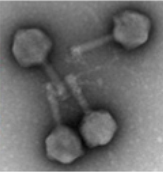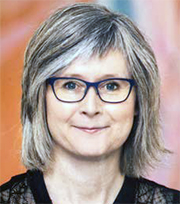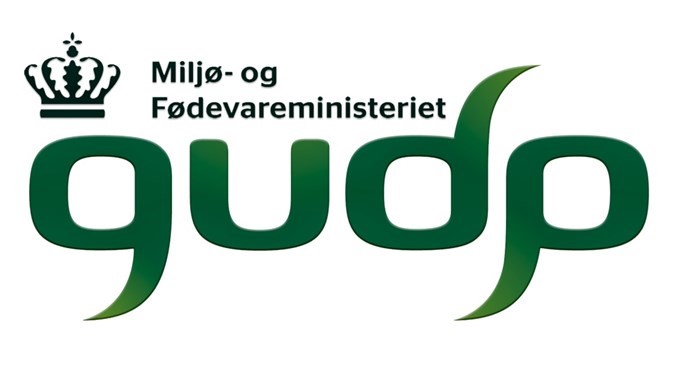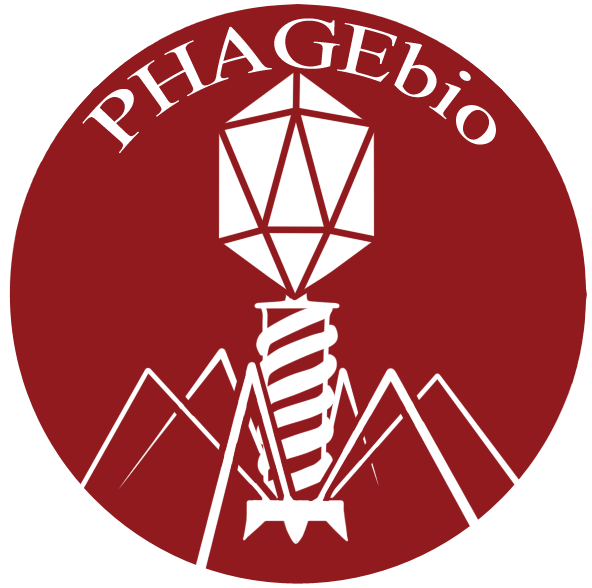PHAGEBio: Phage biology and biocontrol
 We study bacteriophages - the natural viruses that kills bacteria. We provide novel understanding of how phages interact with bacteria and develop novel biocontrol solutions to tackle society challenges caused by pathogenic and antibiotic bacteria in the food industry, animal production and human medicine. Our current focus is Salmonella, Campylobacter, antibiotic resistant E. coli (ESBL) and enterotoxigentic E. coli (ETEC).
We study bacteriophages - the natural viruses that kills bacteria. We provide novel understanding of how phages interact with bacteria and develop novel biocontrol solutions to tackle society challenges caused by pathogenic and antibiotic bacteria in the food industry, animal production and human medicine. Our current focus is Salmonella, Campylobacter, antibiotic resistant E. coli (ESBL) and enterotoxigentic E. coli (ETEC).
Bacteriophages are predators of bacteria that specifically infect and kill their host bacteria. The research of PHAGEBio focus on understanding the host range of phages, identification of phage receptor binding proteins, novel phage resistance mechanisms and the counter-acting strategies of developed by phages.
Our goal is to understand the consequences of microbial interactions by elucidating the underlying molecular mechanism of phage-bacteria interactions. In addition, we aim to use phages and their enzymes to kill bacteria relevant for the food industry, in animal production and human infections. Our current focus is Salmonella, Campylobacter, antibiotic resistant E. coli (ESBL) and enterotoxigentic E. coli (ETEC).
“By establishing large phage and bacterial collections, we are not only able find the most efficient phages for therapy in clinical settings or biocontrol in food production, we can also understand the diversity of phages and how they influence bacteria in their natural niches” says Professor and group leader Lone Brøndsted.
Discovery of two genetic groups of Campylobacter phages recognizing either the capsular polyscaarride or the flagella as receptors
http://dx.plos.org/10.1371/journal.pone.0116287
Identification of host range determinants of Salmonella phages using a novel holistic approach
https://doi.org/10.1111/1462-2920.14597
Innolysins, a novel concept for engineering endolysins to kill Gram-negative bacteria combining the enzymatic activity of endolysins with the binding capacity of phage receptor binding proteins
https://www.nature.com/articles/s41598-020-68983-3
Click on the project line to read more.
AVANT: Alternatives to Veterinary ANTimicrobials
BARE: Biocontrol of Antibiotic REsistant bacteria
CAMPACT: Innovative solutions to combat Campylobacter in the poultry meat production chain
INTRALYTIX: Phage-host interaction in Campylobacter
NIH: Bacteriophage biology and engineering of E. coli phages
TAILOCIN: Novel custom-made antimicrobials targeting Gram-negative bacteria
Are you looking for a bachelor or master project?
We are always interested in recruiting students from all Universities within the area of veterinary medicine, biology, biology-biotechnology, bioinformatics, food science and others for Bachelor and Master projects. Contact us for more information (Professor Lone Brøndsted lobr@sund.ku.dk) or see here for project ideas.
Contact

Group Leader:
Lone Brøndsted
Stigbøjlen 4
DK-1870 Frederiksberg C
Ph: +45 35 33 27 56
Secretariat:
Nora Ottens
Ph: +45 35 33 27 22






